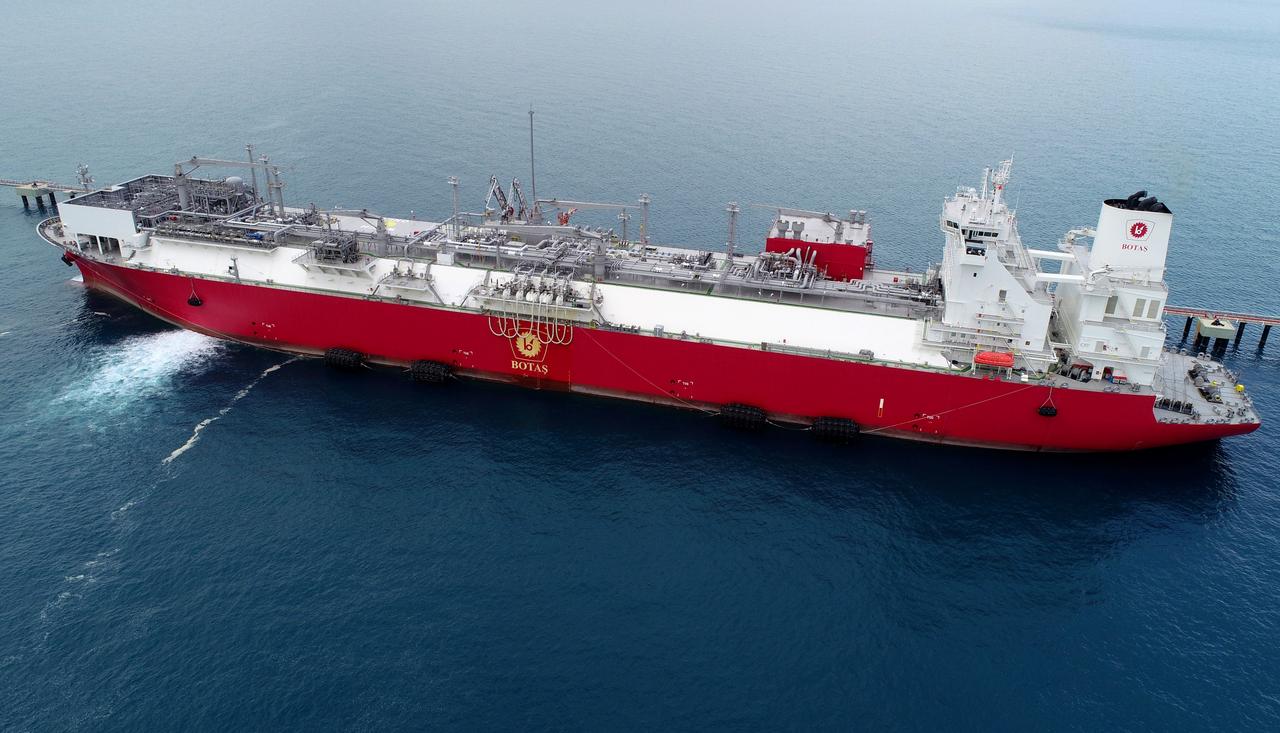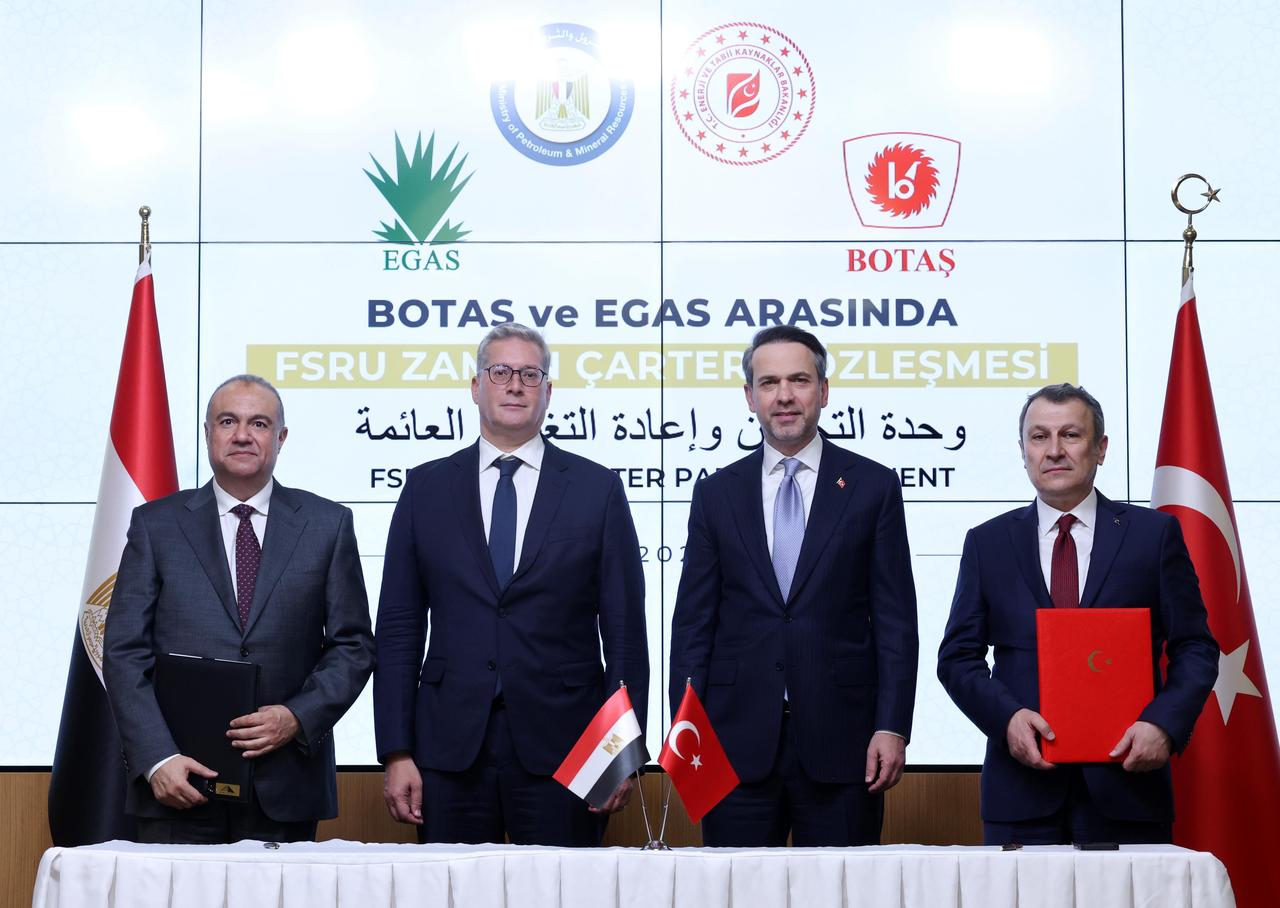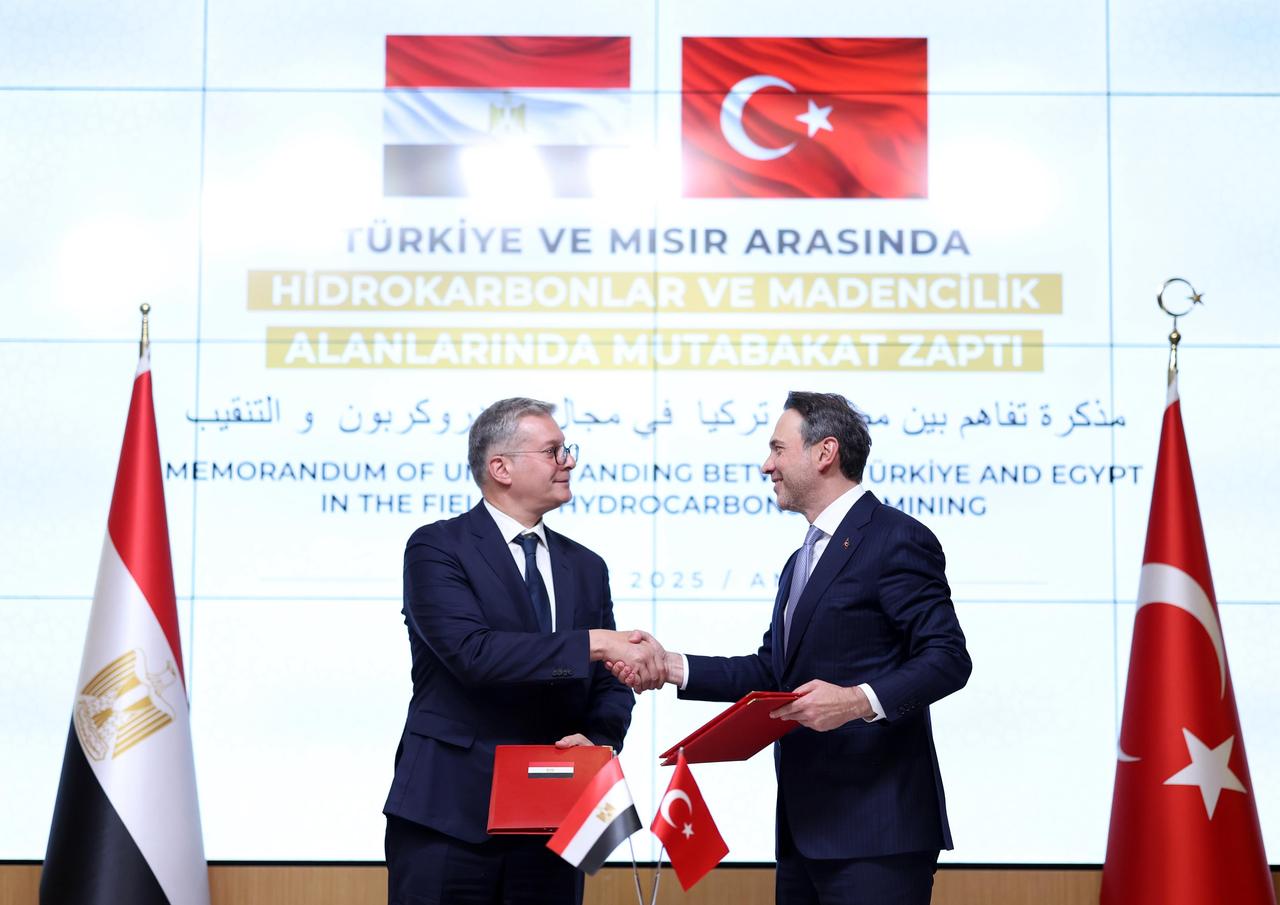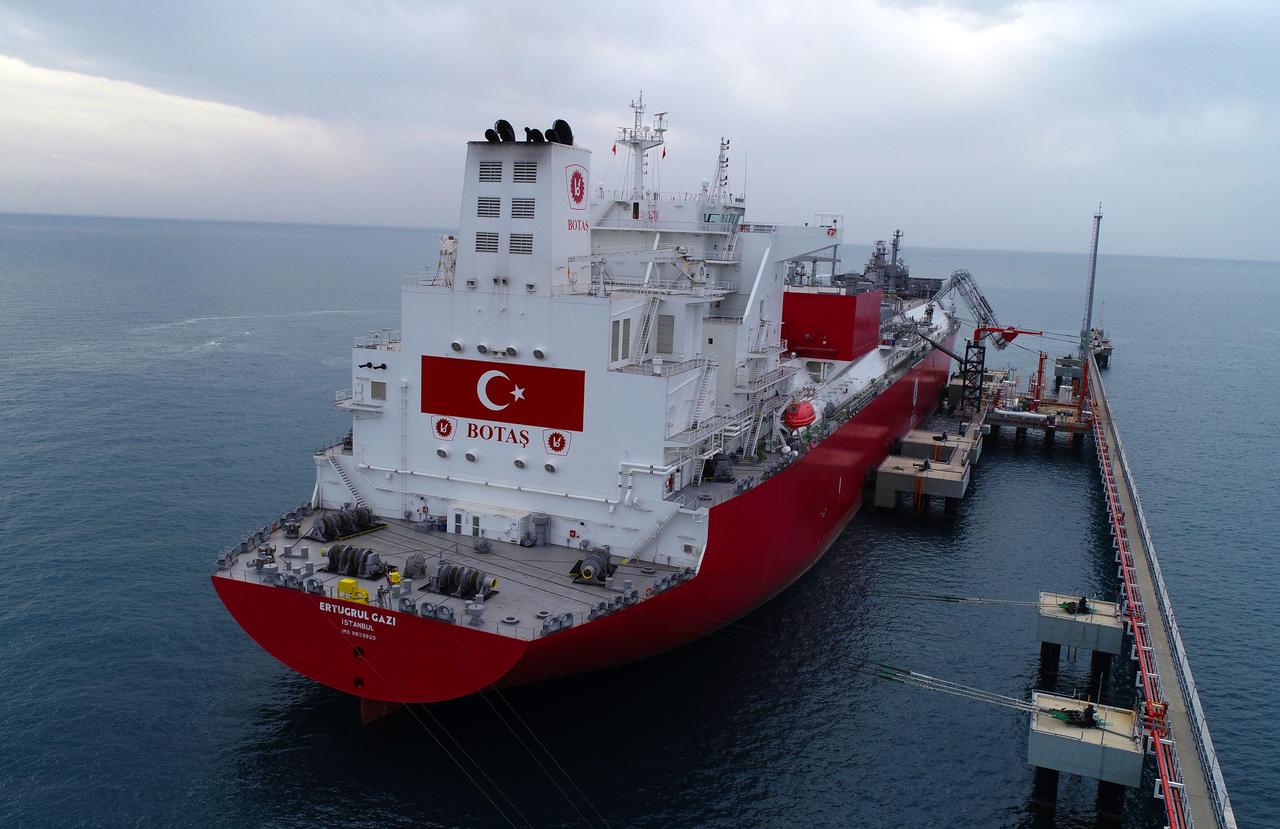
Türkiye’s Energy and Natural Resources Minister Alparslan Bayraktar announced that a Floating Storage Regasification Unit (FSRU) owned by the state-run energy company BOTAS has been loaned to Egypt, marking the first time such a unit from Türkiye will operate abroad on a temporary basis.
Bayraktar shared the update in a written statement following a meeting with Egyptian Minister of Petroleum and Mineral Resources Karim Badawi and his delegation at the ministry headquarters in Ankara on Tuesday.

Bayraktar said that the meeting, which coincided with the centennial of diplomatic relations between Türkiye and Egypt, resulted in the signing of two key agreements to enhance energy sector cooperation, marking a new milestone in Türkiye’s international energy outreach.
“With the contract signed between our national company BOTAS and Egypt’s state energy firm EGAS, an FSRU from the BOTAS fleet will be deployed overseas for the first time,” Bayraktar said. “This will enable the implementation of a flexible and efficient model that contributes to the natural gas supply security of both Türkiye and Egypt. I sincerely believe these steps will open a new chapter in Türkiye-Egypt energy relations, and I hope it will bring mutual benefit to both countries.”

An FSRU, or Floating Storage Regasification Unit, is a specialized vessel used in the import of liquefied natural gas (LNG). It is capable of receiving LNG shipments, storing the gas in liquid form, and converting it back into its gaseous state for use in national energy grids. FSRUs are typically faster to deploy and more cost-effective compared to traditional land-based regasification terminals.

In addition to the FSRU deal, Türkiye and Egypt signed a Memorandum of Understanding (MoU) to formalize institutional cooperation in hydrocarbons and mining. According to Bayraktar, the agreement will facilitate joint efforts in strategic areas such as oil, natural gas, geothermal energy, hydrogen, and critical minerals.
“We signed a memorandum that lays the foundation for institutional collaboration with Minister Badawi,” Bayraktar stated.
“Through this agreement, we will increase the exchange of technical knowledge and expertise and conduct joint studies in various strategic domains.”